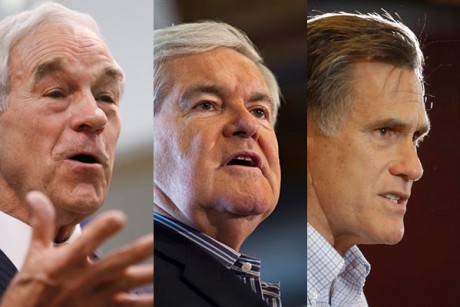Media Influence On The 2012 Republican Primary

With five states holding primary elections today, the Republican race to the White House is not over just yet. While each candidate has had their 15 minutes of fame, Mitt Romney remains in the spotlight, partly due to his accumulation of delegates, and partly due to the media hype around his campaign. A recent report by the Pew Research Center Project for Excellence in Journalism studies the role of the media on the remaining three candidates, and how it has shaped the future of the 2012 Republican primary.
 In an interesting finding, the report shows that Romney's win in Michigan's February 28th primary was the turning point in his campaign. After his close victory in the state, the media unofficially picked Romney as the eventual Republican candidate. Pew reports:
In an interesting finding, the report shows that Romney's win in Michigan's February 28th primary was the turning point in his campaign. After his close victory in the state, the media unofficially picked Romney as the eventual Republican candidate. Pew reports:
"News coverage about his [Romney's] candidacy became measurably more favorable and the portrayal of his rivals—particularly Rick Santorum—began to become more negative and to shrink in volume."
With the media portraying his nomination as "inevitable" and references to delegate math, Mitt Romney gained momentum long before Santorum's official departure from the race.
The report also reveals that despite Newt Gingrich's positive coverage in the media after his January victory in South Carolina, "no candidate also fell off the media radar screen more precipitously than Gingrich," appearing now in less than 1% of stories surrounding the election.
And while there are rumors that Newt Gingrich is planning to drop out of the race, the launch of a 10-city campaign effort in North Carolina, a state that doesn't hold its primary until May 8th, would lead us to believe he is still vying for the Republican bid.
Then there's Ron Paul, whose strategy to collect delegates has garnered him little attention in the media. Pew Research notes that while media coverage on Ron Paul is consistently positive, with only 3% of coverage scrutinizing his personal background of public record, he was practically ignored by the media throughout the election.
Now, sixteen weeks after the Iowa primary, it looks as though Ron Paul has locked up enough delegates to declare the state a victory, and the media is finally picking up in it. Rachel Maddow explains:
"Fourteen of the 28 delegates, half the delegates, are his. He will not get less than half. So Ron Paul either wins Iowa, or worst-case scenario, he ties for first place." She continues, "And, while we're on the subject, looks like Ron Paul just won Minnesota, too. Minnesota has 40 delegates total, this weekend, Ron Paul won 20 of them. Now not all the rest of Minnesota's 40 delegates have been allocated yet, but with half of them locked up, Ron Paul cannot come in worse than first."
So despite the media's attempt to push Gingrich and Paul out of the race, both candidates remain dedicated to their campaigns, confident in their strategy, and resilient in their efforts. Today is not so much about who will win in Connecticut, Delaware, New York, Pennsylvania, and Rhode Island, rather how the media will portray the results.
Do you think the media has played a positive or negative role on the 2012 Republican Primary?




